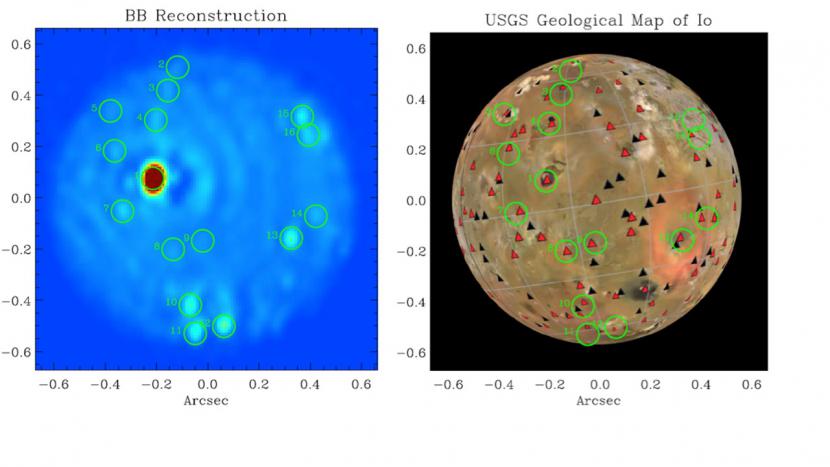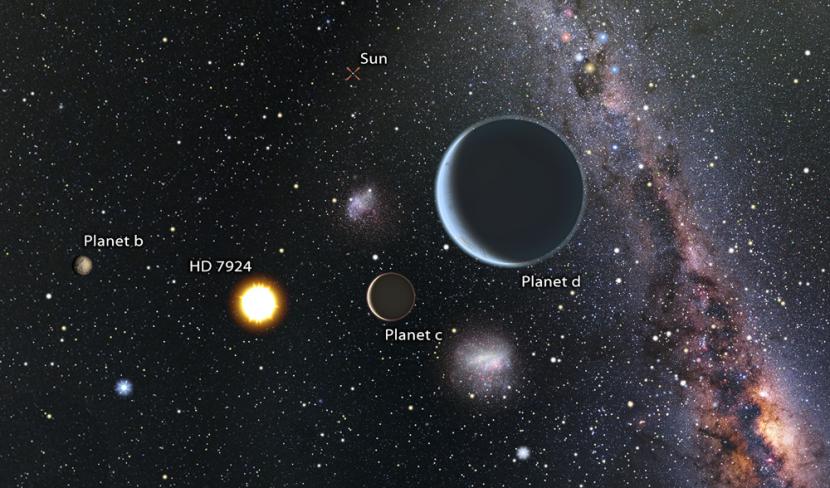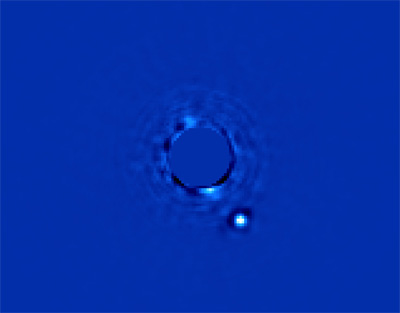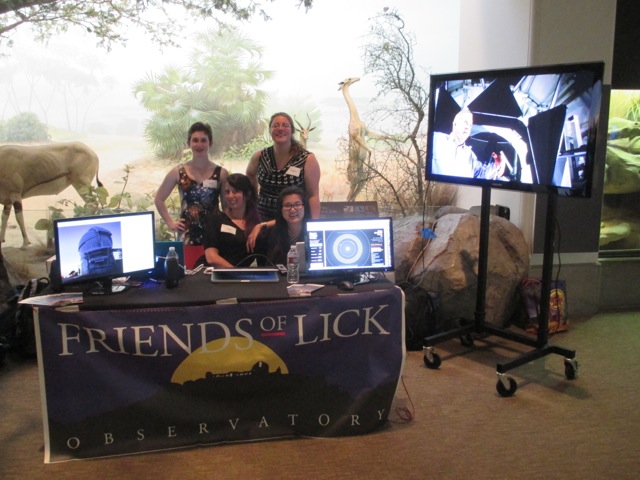-
Giant Telescope Takes a Close Look at a Lava Lake on Jupiter’s Moon Io
May 1, 2015
Scientists recently confirmed information regarding Loki Patera, a volcanic depression on Io (the innermost of Jupiter's four moons) that, up until recently, scientists were unable to closely examine. Using the combined Large Binocular Telescope (LBT) and Large Binocular Telescope Interferometer (LBTI), in addition to the LMIRcam, the camera recording images in the LBTI, scientists found evidence that suggests Loki Patera's bright emissions are actually an active overturning lava lake, a finding that points to confirmations of past hypotheses. From the press release provided by Large Binocular Telescope Observatory: "While we have seen bright emissions – always one unresolved spot – “pop-up” at different locations in Loki Patera over the…
More -
Automated Planet Finder Discovers Three New Planets
April 29, 2015
The Automated Planet Finder (APF), a robotic telescope located at Lick Observatory, has discovered three new planets around a near-by star. These planets, or Super-Earths, have a mass seven to eight times that of Earth; while most planets discovered outside of our solar system have been the size of Neptune or larger, the APF purposefully targets smaller planets around nearby stars in efforts to find habitable planets. The APF's unique automated function enables the telescope to take on graveyard shifts to provide assistance in the search of exo-planets; this unique design is slated to assist with a complete survey of nearby…
More -
Department Celebrates First CalDay in Campbell Hall!
April 23, 2015
The Department of Astronomy participated in CalDay, the annual event where campus opens its doors to anyone looking to learn more about Berkeley and explore everything the campus has to offer. CalDay attendees came to participate in a number of hands-on events and activities hosted by the department that included building scale models of the solar system, learning how to read the "fingerprints" of stars, solar viewings, and how Astronomers go about measuring distances of stars. Our portable planetarium was up and running inside Campbell Hall, providing the opportunity for a guided tour of the constellations visible during springtime. SETI and the Space Exploration Society…
Tags:More -
UC Berkeley Astronomers Lead New NASA-Funded Search for Habitable Planets
April 22, 2015
Department of Astronomy faculty member James Graham will lead one of the 16 new projects funded by NASA in efforts to streamline the search for habitable planets. The project is part of the newly announced NExSS (Nexus for Exoplanet System Science) which seeks to bring together "the best and the brightest" to oversee the search. The Berkeley "exoplanets unveiled" project, which will work alongside scientists at Stanford, is unique due to it's involvement of the "Gemini Planet Imager, a new instrument for the Gemini Observatory that began its exoplanet survey in November 2014; GPI has already imaged two previously known exo-planets and disks…
Tags:More -
Berkeley Participates in Yuri’s Night Celebration at CalAcademy
April 16, 2015
Every year in April a world-wide celebration is held to honor Yuri Gagarin, the first human being to venture into space. This year, members from the UC Berkeley Department of Astronomy took part in honoring this historical achievement with a Yuri's Night celebration at the California Academy of Sciences. Graduate students Erik Petigura and Jason Wang managed telescope viewings on the Academy's living roof, while graduate student Lauren Weiss helped manage the Friends of Lick Observatory table in the African Hall. The table was set up with a live feed and prerecorded footage to the APF (the Automated Planet Finder) and included the Superplanet…
More -
CalDay 2015!
March 23, 2015
CalDay 2015 is almost here! On April 18th the campus opens up to the public for hands-on activities, lectures, presentations, tours, food, and other opportunities to engage with the campus community. The Astronomy department is hosting a number of events; see below for a complete listing so you can plan out your day! Are We Alone?: SETI@home & the Search for ET Hear about Berkeley's SETI (Search for Extraterrestrial Intelligence) program at the world's largest telescopes. Volunteers have a small-but-captivating chance that their computer will detect the first signal from a civilization beyond earth. 11:00-12:00, 3 Leconte - Dan Werthimer “Pluto, Ceres, and Below: What…
Tags:More -
New Instrument Extends the Search for Extraterrestrial Intelligence to New Realms
March 23, 2015
From Astronomy Magazine: "Astronomers have expanded the search for extraterrestrial intelligence into a new realm with detectors tuned to infrared light. Their new instrument has just begun to scour the sky for messages from other worlds. “Infrared light would be an excellent means of interstellar communication,” said Shelley Wright from the University of California (UC) in San Diego who led the development of the new instrument while at the University of Toronto’s Dunlap Institute for Astronomy & Astrophysics. Pulses from a powerful infrared laser could outshine a star, if only for a billionth of a second. Interstellar gas and dust…
More -
Distant Supernova Split Four Ways by Gravitational Lens
March 6, 2015
From release by Robert Sanders: "Over the past several decades, astronomers have come to realize that the sky is filled with magnifying glasses that allow the study of very distant and faint objects barely visible with even the largest telescopes. A University of California, Berkeley, astronomer has now found that one of these lenses – a massive galaxy within a cluster of galaxies that are gravitationally bending and magnifying light – has created four separate images of a distant supernova. The so-called “Einstein cross” will allow a unique study of a distant supernova and the distribution of dark matter in…
Tags:More -
Meet Dan Werthimer
February 23, 2015
Watch the Berkeley SETI Research Center's video profile for Dan Werthimer, Chief Scientist and co-founder of SETI@home and long-time department member! Courtesy of the Berkeley SETI Research Center, Chris Schodt, and Steve Croft.
More -
Campbell Hall Construction Time Lapse
February 19, 2015
Courtesy of UC Berkeley Real Estate.
More








